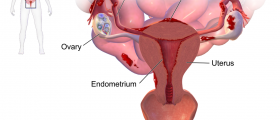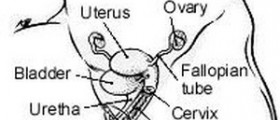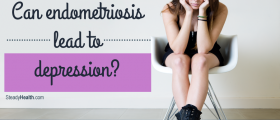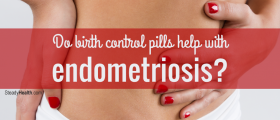
Endometriosis is a gynecological medical condition characterized by changes in the tissue. In this condition, the tissue composed of the cells from the lining the uterus, also known as endometrium, grows in other areas of the body, outside the uterine cavity. The ovaries are usually affected and symptoms of this condition are usually very diverse and include various changes in the normal menstrual cycle, abnormal bleeding and very pronounced pain. Endometriosis usually affects women in their reproductive years, and somewhere between 5 and 10 percent of all women will suffer from this condition at some point in their lives. This condition is very frequent among women suffering from infertility.
Endometriosis pain
The exact signs and symptoms of this disease depend on the exact location of active endometriosis. The universal symptom of the disease is pelvic pain that may range from mild to severe, include cramping, and affect one or both sides of the pelvis. The pain sometimes radiates into the lower back and rectal area, and some patients even complain about feeling the pain in their legs.
The exact level of pain varies from one patient to another. Some women may not feel severe pain even in the later stages of the disease, when scarring of the tissue start to occur. On the other hand, some women may have severe pain even when just a small portion of their body is affected by endometriosis.
When the pain is present it typically manifests as chronic pelvic pain, painful and often disabling cramps during menstruation, pain during the sexual intercourse, and extreme urinary urgency with painful voiding. Women with deep tissue endometriosis more frequently report shooting rectal pain, but the area of pain is typically unrelated to area of endometriosis.
Other symptoms of endometriosis
Other common symptom of endometriosis is infertility. These two conditions are related as endometriosis leads to anatomical distortions and adhesions. These changes on the tissue may release factors which are damaging to gametes or embryos.Other symptoms include chronic fatigue, constipation, and heavy menstrual periods with large blood clots, diarrhea, bloating, and pain with defecation, pain in the legs and tights, premenstrual spotting, mild to severe fever, low blood sugar, anxiety, depression and headaches.
Who is at risk?
Endometriosis is a disease that affects only women, typically in their reproductive years. Women who have never give birth are at the highest risk, as well as those who have family history of this disease. Other risk factors include any kind of medical condition that prevents normal passage of menstrual flow, a history of pelvic infection and menstrual cycles shorter than 27 days, with bleeding lasting more than 8 days.

















Your thoughts on this
Loading...